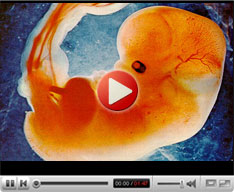
Know Infertitlity
Infertility treatments
Diagnosing InfertilityMale:
Obstetrics and Gynaecology
Infertility Treatment Services
Andrology |
Tubal blocksThe fallopian tubes refer to two thin tubes that are present on the either side of the uterus. They comprise the path taken by the mature egg to travel from the ovaries to the uterus. A blocked fallopian tube refers to an obstruction that prevents the egg from reaching the uterus from the ovaries down the tube. This is also called tubal factor infertility and can occur in one or both the fallopian tubes. Blocked Fallopian Tubes and InfertilityAn egg is released from one of the ovaries during ovulation that occurs every month. While the egg travels through the tubes and into the uterus, the sperm has to make its way from the cervix and through the fallopian tubes to reach and fertilize the egg. Fertilization ideally occurs while the egg is moving through the fallopian tube. However, if one or both fallopian tubes are blocked, it hinders the movement of the egg towards the uterus while also blocking the passage of the sperm through the tubes and towards the egg, thereby preventing fertilization and subsequent pregnancy. A partial tubal blockage gives rise to increased tubal or ectopic pregnancy. Symptoms of Blocked Fallopian TubesBlocked fallopian tubes normally do not cause any significant symptoms. However, some of the causes of blocked fallopian tubes might lead to hints of a problem. For example, pelvic inflammatory disease and endometriosis causes painful menstruation although these symptoms do not actually indicate blocked tubes. Causes of Blocked Fallopian TubesThe main cause of blocked fallopian tubes is a sexually transmitting disease called pelvic inflammatory disease (PID). Other causes of blocked fallopian tubes include:
Treatments for Blocked TubesThe traditional method to treat tubal obstruction was tubal surgery. However, there are many drawbacks to tubal surgery as it is invasive, has several side-effects and increases the chances of ectopic pregnancies. In certain cases, laparoscopic surgery is recommended to open blocked tubes and remove scar tissue that is affecting pregnancy. However, the rate of success depends on factors such as age (chances of pregnancy decreases with age), the location and severity of the blockage and the possible cause of the obstruction. Partial tubal blockage (one open tube) can be treated easily without much complication. You will be given fertility drugs to boost the chances of ovulation on the side with the open tube. However in cases of extreme blockage, scaring and multiple adhesions, IVF treatment is the best bet. It is less invasive and highly affordable while treating fallopian tube blockage. It is also a much safer and more effective option. |
Our TeamNews & EventsClinic LocationVideo Gallery |















